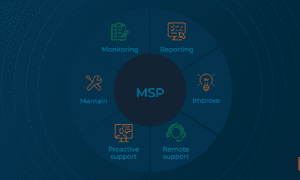The Data-Driven Shift in Commercial Real Estate
In today’s competitive commercial real estate market, performance is everything. Whether you’re managing office buildings, industrial parks, or retail spaces, success hinges on your ability to monitor, analyse, and optimize your assets. This is where real estate tracking becomes a game-changer.
By leveraging data and technology to track everything from occupancy trends and maintenance schedules to financial performance and tenant behavior, property owners and managers gain the insights they need to boost profitability, reduce risks, and enhance operational efficiency.
What Is Real Estate Tracking?
Real estate tracking refers to the continuous monitoring and recording of property-related data across various touchpoints. This includes:
- Occupancy and vacancy rates
- Rental income and arrears
- Maintenance and repair schedules
- Tenant satisfaction and retention metrics
- Asset depreciation and valuation
- Energy usage and sustainability performance
These metrics form the foundation for informed decision-making and strategic planning in commercial property management.
Why Real Estate Tracking Is Essential for Commercial Properties
- Enhances Operational Efficiency
Tracking operational data helps property managers identify inefficiencies and bottlenecks. For example, by reviewing maintenance logs and response times, you can optimize staffing or service contracts and reduce costly downtime.
This kind of efficiency is often powered by Commercial Property Management Software, which centralizes all data into a single, accessible platform allowing for better coordination and control over operations.
- Improves Tenant Retention and Experience
Tracking tenant interactions, complaints, and service requests helps managers provide a better tenant experience. Proactive maintenance, quick responses, and personalized communication improve satisfaction, leading to higher renewal rates.
These insights are often enhanced through systems that include some of the best features in property management software, such as automated notifications, performance dashboards, and tenant feedback tools.
- Optimizes Financial Performance
Data doesn’t lie. Tracking financial metrics such as rent collection, operating expenses, and capital expenditures helps investors and managers spot trends, forecast income, and identify areas for cost savings.
Real Estate Development Accounting Software plays a vital role here, helping track expenses tied to development phases, manage project budgets, and ensure tax compliance. When paired with real-time financial data from operations, it provides a comprehensive picture of portfolio performance.
- Supports Strategic Decision-Making
Should you raise rents? Renovate? Sell underperforming assets? Real estate tracking allows you to answer these questions based on hard data. Longitudinal data trends offer insights into market demand, seasonal fluctuations, and asset aging empowering smarter investment decisions.
Real-Life Application: Turning Data Into Value
Consider a property manager overseeing a portfolio of office buildings. By using Commercial Property Management Software to track energy usage, maintenance frequency, and tenant feedback, they discover that one building has higher utility costs and more complaints than others.
After analyzing the data, they invest in smart HVAC upgrades and improve communication protocols with tenants. Within six months, utility costs drop by 18% and tenant satisfaction scores rise, reducing turnover. That’s the power of real estate tracking in action.
Integrating Technology: The Role of Property Management Software
Modern tracking isn’t possible without the right tools. Today’s best features in property management software include:
- Real-time financial dashboards
- Automated rent and maintenance tracking
- Occupancy and lease analytics
- Customizable reports and KPI monitoring
- Integration with accounting and CRM tools
By centralizing this data, property managers save time, reduce human error, and get a clearer picture of property health.
When paired with Real Estate Development Accounting Software, tracking extends to the development lifecycle as well covering project costs, funding allocations, and contractor payments. This is crucial for developers managing multiple construction phases or large-scale renovations.
Benefits of Real Estate Tracking at a Glance
- Data-Driven Decisions
Say goodbye to guesswork and rely on clear trends and metrics. - Time Savings
Automate reports and reduce manual tasks. - Strategic Planning
Plan for future growth with accurate forecasts and performance reviews. - Cost Control
Track expenses closely and identify areas to cut costs. - Better Asset Management
Understand how each property performs and when it’s time to upgrade, renovate, or sell.
Conclusion: Track to Thrive
In a fast-paced commercial real estate environment, what gets measured gets managed and improved. Real estate tracking enables better oversight, stronger tenant relationships, tighter financial controls, and smarter growth strategies.
Whether through Commercial Property Management Software or Real Estate Development Accounting Software, embracing data and tracking systems is essential for long-term success. And with access to the best features in property management software, property managers and investors are well-positioned to make their assets not only perform but thrive.
How Real Estate Tracking Improves Commercial Property Performance
The Data-Driven Shift in Commercial Real Estate
In today’s competitive commercial real estate market, performance is everything. Whether you’re managing office buildings, industrial parks, or retail spaces, success depends on your ability to monitor, analyze, and optimize your assets in real time. This is where real estate tracking becomes a game-changer.
By leveraging data and technology to track everything from occupancy trends and maintenance schedules to financial metrics and tenant satisfaction, property owners and managers gain critical insights to boost profitability, reduce risks, and operate more efficiently.
What Is Real Estate Tracking?
Real estate tracking is the ongoing monitoring of data across various aspects of property performance. This includes:
- Occupancy and vacancy rates
- Rental income and arrears
- Maintenance logs and repair timelines
- Tenant satisfaction scores and retention rates
- Asset depreciation and valuation
- Energy consumption and sustainability indicators
These metrics form the foundation of informed decision-making, helping commercial property owners stay agile in a fast-moving market.
Why Real Estate Tracking Is Essential for Commercial Properties
1. Enhances Operational Efficiency
Tracking operational data helps identify inefficiencies and streamline workflows. Reviewing maintenance logs, for instance, can reveal delays or repeated issues—signaling the need for vendor changes or process updates.
This level of insight is often powered by Commercial Property Management Software, which centralizes property data into a single platform for coordinated oversight and faster decision-making.
2. Improves Tenant Retention and Experience
When you track tenant service requests, communication history, and response times, it’s easier to anticipate needs and resolve issues proactively. The result? Happier tenants and higher renewal rates.
These improvements are enabled through systems featuring some of the best features in property management software, such as automated alerts, tenant satisfaction tracking, and communication portals—all designed to keep tenants engaged and informed.
3. Optimizes Financial Performance
Comprehensive tracking of financial data—like rent collection, operating costs, and capital expenditures—helps property owners uncover inefficiencies and pinpoint revenue opportunities.
Real Estate Development Accounting Software adds another layer of insight by managing construction costs, development phase budgeting, and tax tracking. Together, these tools provide a real-time, end-to-end view of your portfolio’s financial health.
4. Supports Strategic Decision-Making
Should you raise rents, invest in renovations, or sell an underperforming asset? Real estate tracking helps you base these decisions on concrete data—not guesswork. Long-term trend analysis offers valuable insights into market shifts, seasonal patterns, and asset lifecycle stages.
Real-Life Application: Turning Data Into Value
Imagine a property manager overseeing several office buildings. With Commercial Property Management Software, they monitor maintenance response times, energy use, and tenant feedback. One building consistently underperforms.
After diving into the data, they upgrade the HVAC system and adjust staffing to improve communication. Six months later, energy costs are down 18%, tenant satisfaction has improved, and renewals are up. That’s the value of tracking in action.
Integrating Technology: The Role of Property Management Software
Real estate tracking isn’t possible without the right tools. Today’s top features in any software include:
- Real-time financial dashboards
- Automated maintenance and rent tracking
- Lease analytics and occupancy insights
- Custom KPI reporting
- Integrations with CRM and accounting platforms
By consolidating this data, property managers minimize manual work, improve accuracy, and gain a clear picture of performance.
When used alongside Real Estate Development Accounting Software, tracking extends into development and renovation cycles—offering clarity on project costs, timelines, and vendor payments for multi-phase builds.
Benefits of Real Estate Tracking at a Glance
- Data-Driven Decisions: Back every move with clear metrics
- Time Savings: Automate reports and reduce admin overhead
- Strategic Planning: Prepare for growth with reliable forecasting
- Cost Control: Spot overspending early and stay on budget
- Better Asset Management: Track property performance and know when to upgrade or exit
Conclusion: Track to Thrive
In commercial real estate, what you measure is what you manage—and ultimately improve. Real estate tracking empowers better oversight, tenant satisfaction, cost control, and long-term strategic growth.
Commercial Property Management Softwares offer a tracking-first mindset that gives you the edge. And with access to the best features in property management software, you’ll be equipped to make your assets not just perform—but thrive.

































